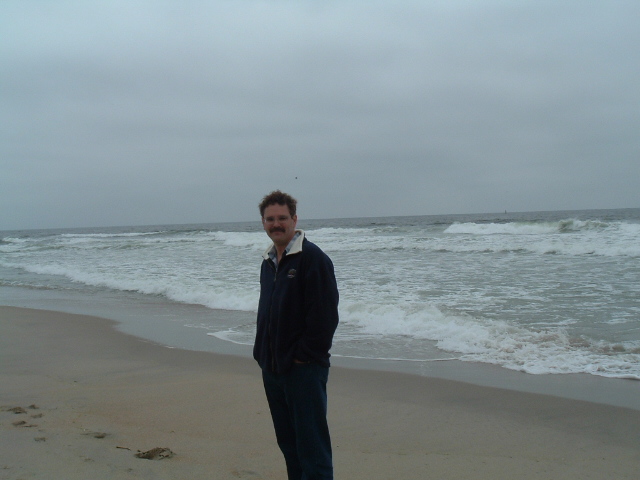|
|
Join me in my verse-by-verse exploration of the Bible.
If you have questions or edifying comments, I'd like to hear from you! You can email me from the HOME page.
I've been sending my work in Microsoft Word documents to various individuals over the past couple of decades. Cyberspace is a much better way to share my efforts. No two theologians have ever agreed on everything in Scripture, so don't be surprised if you find something here that upsets your theological applecart. Relax. He will straighten me out when I get to heaven! You're probably wondering if you can trust my exegesis. Of course you can! I obtained my exegetical training from professors at Western Theological Seminary, Dallas Theological Seminary, and Regents College. Do I have any theological beliefs that color my work? Like every other student of the Word, of course I do! In case you want to know what some of them are, I'm going to share a few of them with you here. My theological training has come from a wide variety of "schools of thought." It has been my experience that no existing denomination has all truth in proper perspective, so I have borrowed what I consider "the Best of the Best" in theology from whatever quarter possible. Here's a sample:
You might wonder why I would tell you up front what my theological tendencies are. Well, in case
you hang around this site for awhile, and begin wondering where on earth I came up with a particular translation of some passage
in Scripture, you now have a frame-of-reference to work from!
My interest is primarily in verse-by-verse exegesis. By sticking to this approach, I believe Scripture itself will teach us what we need to know as often as we need to know it. This approach prevents me from getting on a soapbox and running some pet theology into the ground. There are already many systematic theology texts available, so my motivation is not geared towards creating another. If you don't see something my way, it is probably because (a) as a believer you don't adhere to one or more of the above categories of doctrine, (b) you are an unbeliever with no affiliations with any type of theology or philosophy on religion, or (c) you are knowingly or unknowingly involved in a cult. If you don't adhere to the Deity of Christ and its closely-related doctrine of the Trinity, you are not a Christian. I believe this constitutes the "lowest common denominator" to enable a person to call himself/herself a Christian. The death, burial, resurrection, ascension and session of Christ is of paramount importance. If you have a problem with this fact, the issue for you is to "Believe in the Lord Jesus Christ and you will be saved." Apart from this, most of what you encounter in this website will be clear as mud.
Click here to download The Calvinistic Heritage of Dispensationalism PDF file Click here to download Why Every Calvinist Should Be A Premillennialist PDF file |
##################################################################
I use a lot of creative terminology
and concepts taught by Robert B. Thieme, Jr. of Berachah Church, Houston, Texas. I consider his vocabulary and teaching aids
superior to what I learned in seminary. This vocabulary is especially significant in what is known as "experiential sanctification,"
or how to live the Christian way of life. I consider his teaching in this area of theology to be second to none.
This does not mean Colonel Thieme endorses anything in this web site, nor does it mean I agree with him on every category of theology. We have differences of opinion in several areas, but that fact does not diminish my respect for his profound contributions to Christian theology. "Te salutem dicit."
This does not mean Colonel Thieme endorses anything in this web site, nor does it mean I agree with him on every category of theology. We have differences of opinion in several areas, but that fact does not diminish my respect for his profound contributions to Christian theology. "Te salutem dicit."
